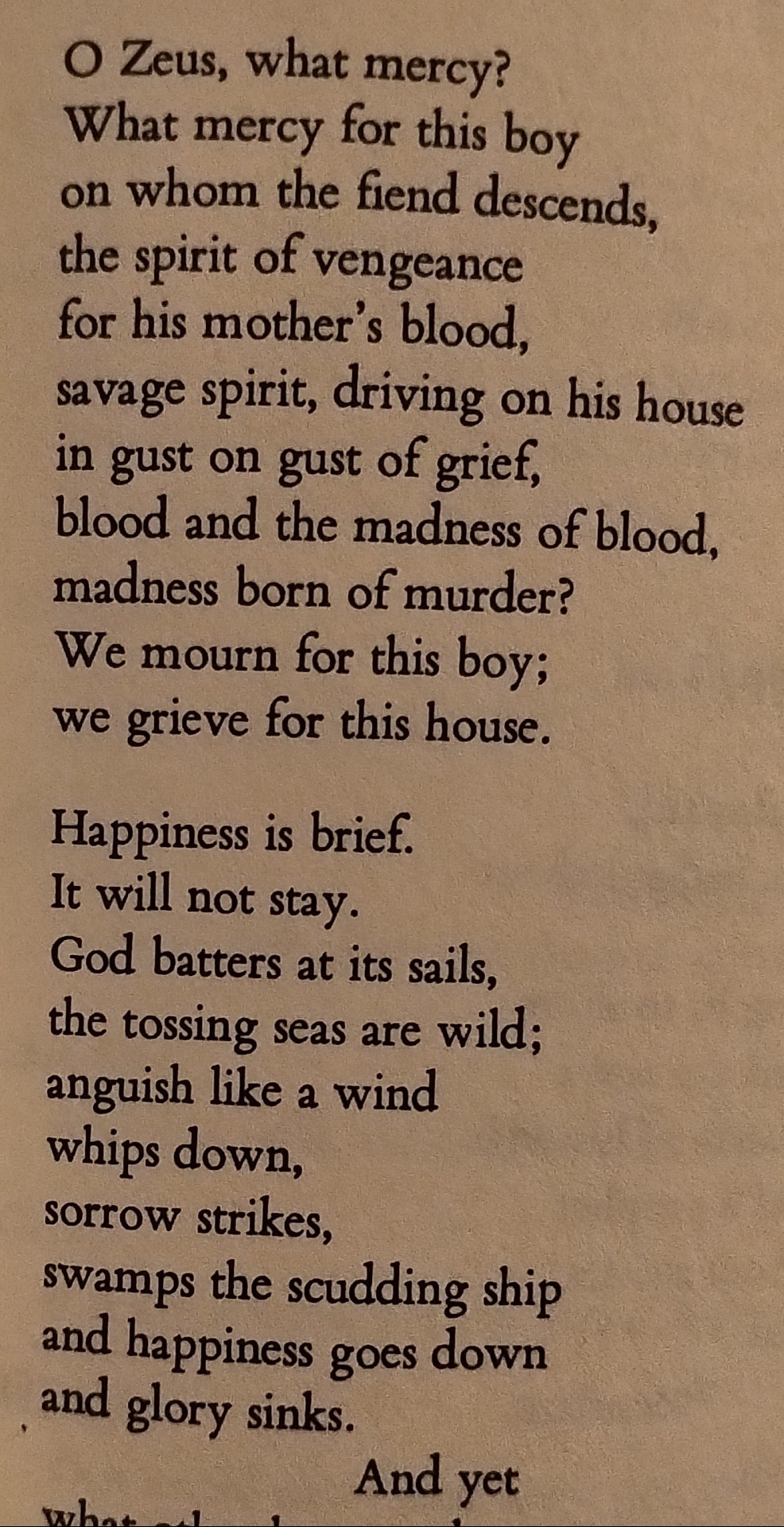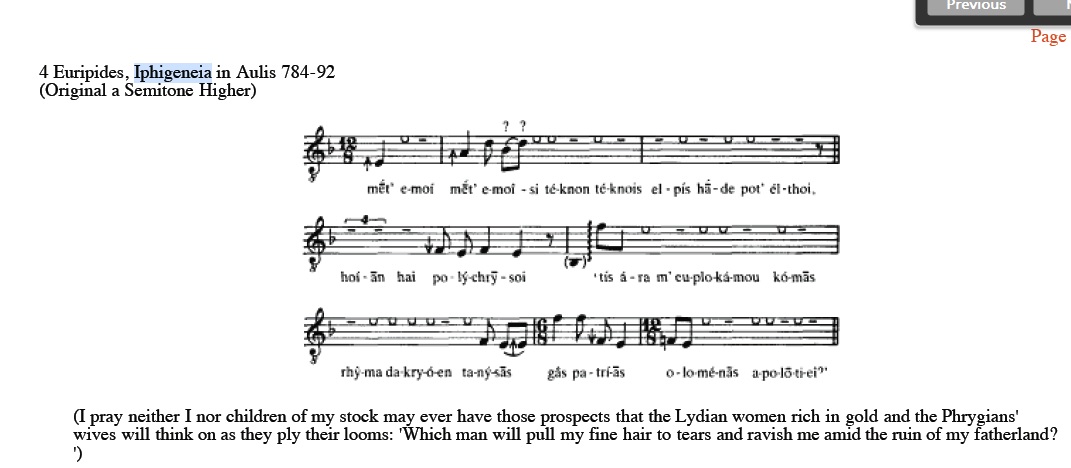On the subject of that two-square-inch surviving fragment of Euripides music, this is an interesting video for its thoroughness-- showing the original text and notation, a transliteration, a translation into Spanish, and a sheet music realization on screen (showing off the use of quarter-tones)-- though the performance itself is not very good:
i was actually planning on posting the Orestes piece, but wanted to make sure to find the translation of it-- but got too lazy to do it until now-- I believe it is from this part of the chorus's first big part, having just witnessed Orestes have a bout of madness and then pass out:
Here is another version just because it is quite a good performance:
The dearth of surviving music of these operas is a complete fucking travesty.... :'c


